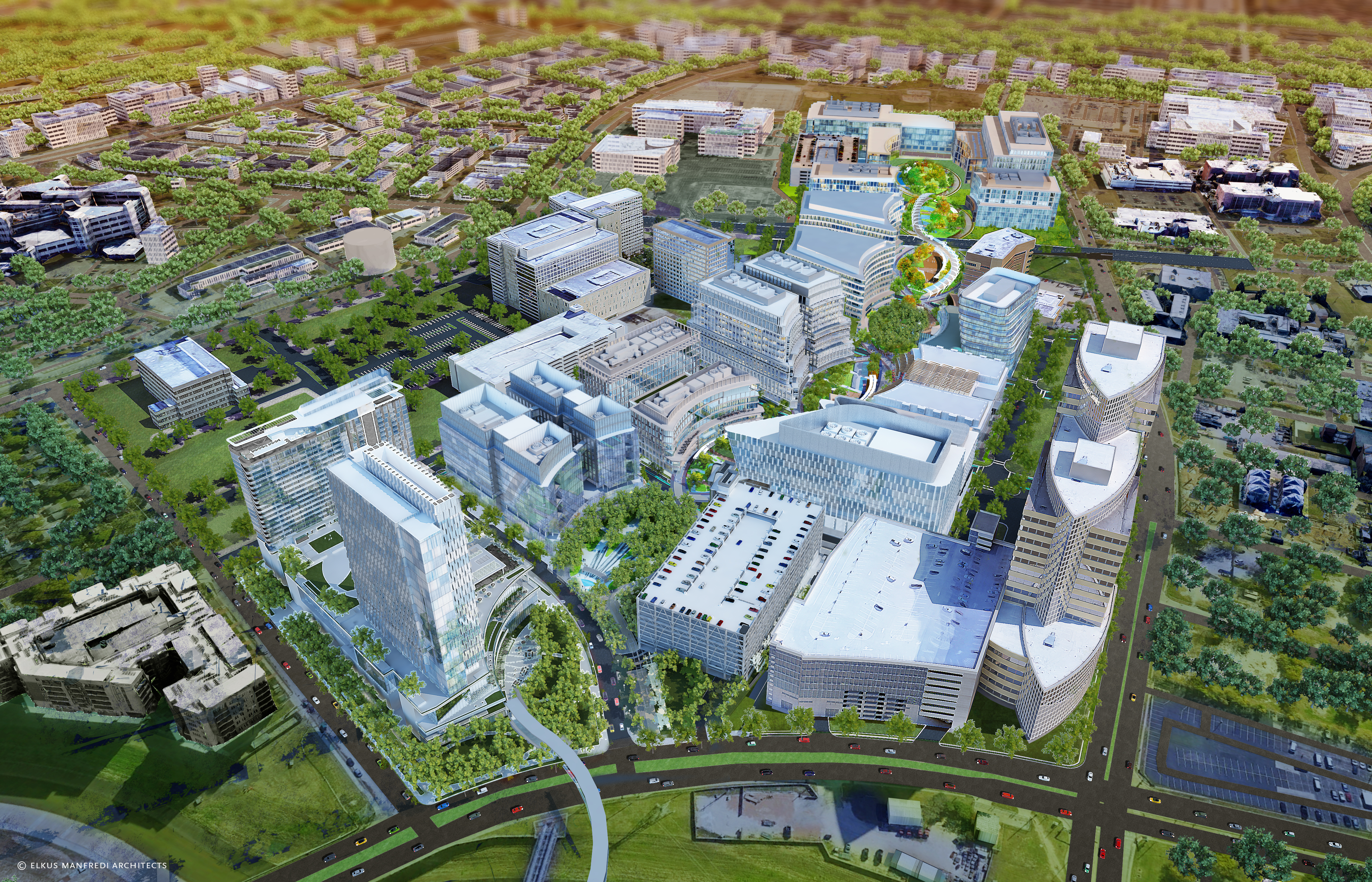Design Revealed for Much-Anticipated TMC3 Campus
Published May 01, 2019 by A.J. Mistretta
![]()
The institutions behind a massive collaborative healthcare and research campus have hired the design and development team that will make the project a reality.
Slated to rise on 37 acres on the south end of the existing Texas Medical Center campus, TMC3 will bring together Baylor College of Medicine, Texas A&M University Health Science Center, The University of Texas Health Science Center at Houston (UTHealth), The University of Texas MD Anderson Cancer Center and TMC itself to realize the translational research campus. Elkus Manfredi Architects, Transwestern, and Vaughn Construction will serve as the architectural and development team.
Construction on the project will begin in the first quarter of 2020 with completion expected in 2022.
New renderings show a more dynamic version of TMC3, which will combine collaborative research facilities with other uses including retail, residential, a hotel, conference space and abundant green space. Proponents believe such a mix will engage the public and help make TMC3 a civic destination that is accessible, inclusive, and vibrant.
“Texas Medical Center is eager to move forward with a bold, imaginative and dynamic new design vision for the TMC3 Master Plan,” emphasized TMC CEO & President Bill McKeon. He added, “With the combined talents of Elkus Manfredi Architects, Transwestern, and Vaughn Construction on-board, I couldn’t be more confident that this dream team will flawlessly execute the totality of the project’s vision and fulfill its mission to bring together leading researchers and top-tiered expertise from the private sector to create the number one biotechnology and bioscience innovation center in the entire world.”
“If you think about great academic institutions, it’s the outdoor space that defines their campuses because that’s what brings people together,” said Elkus Manfredi Architects CEO and Founding Principal, David Manfredi. He added, “Our idea was to expand on the DNA design concept and create a series of spaces that would elongate the strand all the way north to the historic core of the Texas Medical Center and south to the new development by UTHealth and MD Anderson in order to create more opportunity for connections and collisions. We’re implementing the connective tissue between all these places and establishing opportunities for unplanned interactions. Science, technology, medicine, discovery and innovation are all about making connections, and we are building a space for institutions, industry and startups to interact.”
![]()
Originally conceptualized as a helix-shaped facility, TMC3’s new design more closely resembles an elongated DNA necklace in the form of a green space promenade that cuts vertically across the campus and is interlaced horizontally by a walkable – and drivable – urban street grid. The DNA strand will not only give TMC3 an instantly recognizable brand identity, it will also link a series of open green spaces designed to become an attraction for the entire city. Each space can serve a different need for wide-ranging demographics, including one created for a park-like setting, another for outdoor activities, and a third as an amphitheater.
“We want to create spaces that attract talent. You can attract talent with great colleagues, research and facilities, but if you don’t have a great social environment for people to live, learn, and play, people move on,” said David Manfredi, CEO of Elkus Manfredi Architects. “We are creating a place where people will want to be because they’re constantly stimulated – whether it’s breakfast at the local coffee shop, or a volleyball league in the afternoon, or working in a central lab and the person next to them is doing something intersects with their own research.”
 The Houston Report
The Houston Report



















